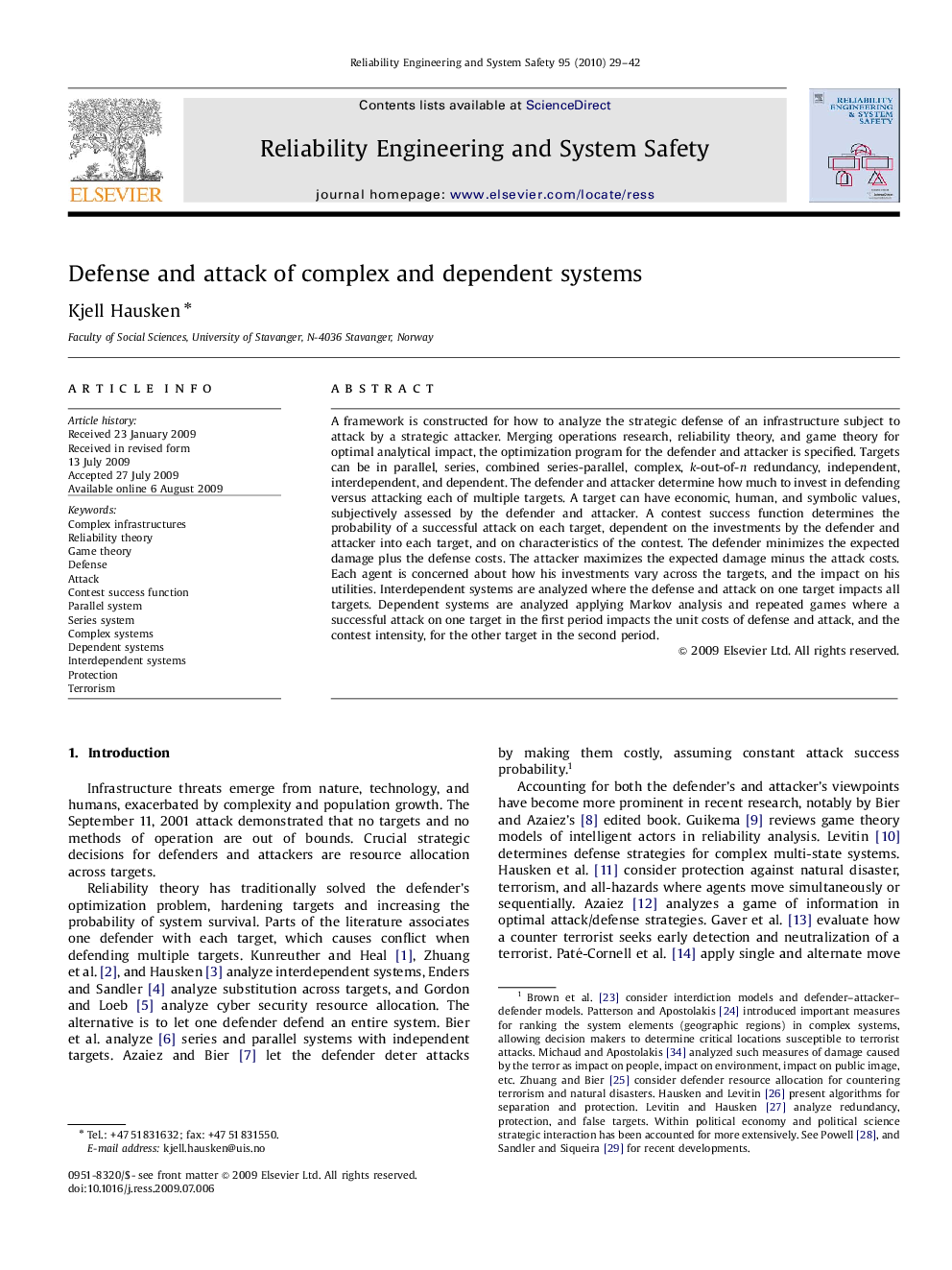| Article ID | Journal | Published Year | Pages | File Type |
|---|---|---|---|---|
| 806492 | Reliability Engineering & System Safety | 2010 | 14 Pages |
A framework is constructed for how to analyze the strategic defense of an infrastructure subject to attack by a strategic attacker. Merging operations research, reliability theory, and game theory for optimal analytical impact, the optimization program for the defender and attacker is specified. Targets can be in parallel, series, combined series-parallel, complex, k-out-of-n redundancy, independent, interdependent, and dependent. The defender and attacker determine how much to invest in defending versus attacking each of multiple targets. A target can have economic, human, and symbolic values, subjectively assessed by the defender and attacker. A contest success function determines the probability of a successful attack on each target, dependent on the investments by the defender and attacker into each target, and on characteristics of the contest. The defender minimizes the expected damage plus the defense costs. The attacker maximizes the expected damage minus the attack costs. Each agent is concerned about how his investments vary across the targets, and the impact on his utilities. Interdependent systems are analyzed where the defense and attack on one target impacts all targets. Dependent systems are analyzed applying Markov analysis and repeated games where a successful attack on one target in the first period impacts the unit costs of defense and attack, and the contest intensity, for the other target in the second period.
